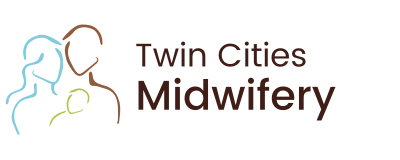28 Oct Insurance Benefit Questions for Midwifery Care
by Kate Saumweber Hogan, CPM, LM
We get a lot of questions about insurance…what is covered, what isn’t, how can we find out what our plan covers or doesn’t. This post will go through some questions to ask your insurance company to get a general sense.
Here at Twin Cities Midwifery, insurance billing services are part of your routine care, with no additional fees attached to that service. We will do a benefits check for you when you establish care so that you don’t have to call and ask all of the questions, and that will give us all a general sense of how your care may or may not be covered. We also follow up on all of the claims we submit to make sure they are processed correctly, and we ask them to be reprocessed when needed. We sit on hold, get transferred from representative to representative, to get you the best reimbursement possible.
That being said, sometimes people want to call and ask these questions prior to choosing home birth, or they may be in open enrollment and wanting to compare plans. Here are some questions and language to consider using to try to learn more about your plan options.
It is always important to remember that a quote of benefits is not a guarantee of payment. Payment is determined at the time the claims are processed according to your plans benefits and provisions.
In general, plans through the state, such as Medical Assistance, MA, or MN Care plans do not cover Licensed Midwife care unless it is through a birth center. This is because most Licensed Midwives are out of network, and MA does not have any out-of-network benefits (they only pay for services provided by in-network providers).
Most private plans (through an employer or purchased through a broker or MNsure) DO cover Licensed Midwifery care. Many of my clients get at least some, and often all, of their care covered. Below are questions to help determine if your plan would cover care provided by Twin Cities Midwifery. (Wondering how many of our client’s insurance plans cover our services, check out our Stats Post and scroll down to the second to last paragraph, which addresses insurance coverage.)
When you call, be sure to note the date and time of the call, and the name of the rep you are speaking with. They also may give you a reference number for the call. It is really important to keep track of this, because if they don’t process your claim the way they said they would, then you can call them and refer to the original call you made, and they will listen to the recording of it and reprocess the claim for you!
- What are the maternity benefits for this plan?
In-network: ??% coverage for prenatal care after meeting the deductible of $???. Postpartum care would be covered at ??% after meeting the deductible of $???. Delivery would be covered at ??% after meeting the deductible of $???.
Out-of-network: ??% coverage for prenatal after meeting the deductible of $???. Postpartum care would be covered at ??% after meeting the deductible of $???. Delivery would be covered at ??% after meeting the deductible of $???.
Most home birth midwives are out-of-network providers, so these are the numbers you really want to know. However, I always ask both because it is nice to compare. Remember that if you birth in the hospital, you need to pay your deductible for both mom and baby, so often a hospital birth is still more expensive out of pocket, even if your insurance doesn’t cover much or any of your home birth care.
(In my benefits checks I like to state what is covered by insurance. Some insurance companies quote benefits as what the client will need to pay. For example, I might say that 70% is covered, the insurance company would say there is 30% co-insurance, and this means the same thing.)
Are Labs and ultrasounds included in this plan’s prenatal care? At what rate are they covered?
Labs and ultrasounds are covered at ???%.
Many out of network midwifery practices use in-network labs or radiologists, so you may want to ask if the labs/radiologists you will be using are considered in network with your plan. Most often, routine labs and ultrasounds are covered at whatever level of prenatal care is covered.
- What date does the policy begin?
The policy has already begun (date it began) and there are no pre-existing waiting periods or conditions that need to be met for prenatal care, labor, delivery, or postpartum.
This use to be an issue more before the Affordable Care Act went into effect. Now most plans do not consider pregnancy as a pre-existing condition.
- Is there a Health Savings or Flexible Spending Account attached to this plan?
In general, HSAs/FSAs can be used to pay for midwifery care.
Sometimes the insurance company can’t see if the family has one of these, but sometimes the account is connected to the plan. It is a great option for paying for midwifery care.
- Are Licensed Midwives a “covered provider type”?
Some plans exclude licensed midwives, and some only cover CNMs working under a physician. It is best to find this out now so that there isn’t a surprise at the end. It is also useful to ask this question during a benefits check so that if they say that midwives are covered, and then the claim isn’t processed, they can go back and listen to the phone call to see what was quoted.
- Is the planned place of birth covered?
Always ask in a way that does not make them want to red flag the account. Don’t say “I’m planning a home birth, is that covered?” Do say, “I am still considering my birth options, and are deciding between a hospital birth and a home birth. Would the professional delivery fee be covered in the home setting, or only in a hospital?” Some plans don’t want to pay for any services even related to a home birth, so if they know you are planning a home birth, they won’t pay for prenatal care that would otherwise be covered.
- Are the hospitals in this area covered?
Often all of the major hospitals in the Twin Cities are in-network, however, it is still good to ask. Some plans have very limited coverage, for example if you are employed in a health system, and then only the hospitals in that health system are in network. Ask to see if your closest and preferred hospitals are in network in case of transfer.
- Will the newborn be covered?
Often the newborn must be added to the policy within 30 days. If the mother is on her parent’s (baby’s grandparents) insurance, then the newborn will not be covered.
- Anything else…
Depending on how long you want to spend on the phone, you might also want to ask if genetic screening is a covered benefit, what benefits you have for breast pumps or lactation visits, if childbirth education or doula services are covered.
These questions will give you a general idea of what to expect. Even if it sounds like your insurance won’t cover anything, you still have some options. Sometimes people purchase a secondary insurance plan that will cover out of network prenatal care at 100% without needing to meet a deductible. However, keep in mind that it may not be worth paying for extra insurance based on how much they would reimburse for the care. Another option is to apply for an in-network exception, making it so that for your plan, your out-of-network provider can be covered at your in-network level. Be sure to ask your midwife if you would like instructions on how to go about doing that.




Twin Cities Midwifery’s Cesarean Rate and other Statistics through December 2015 – Twin Cities Midwifery Blog
Posted at 14:04h, 12 May[…] more than $4,000! For more information on insurance coverage of home birth services, check out our Insurance Benefits blog […]
Twin Cities Midwifery’s Cesarean Rate and other Statistics through December 2016 – Twin Cities Midwifery Blog
Posted at 11:25h, 18 January[…] stats as well. For more information on insurance coverage of home birth services, check out our Insurance Benefits blog […]